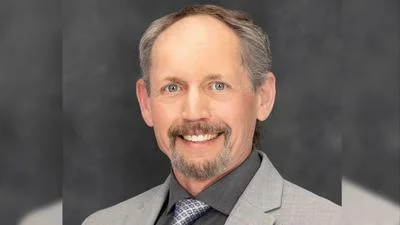Rep. Martin McLaughlin (R-Barrington Hills) | Martin McLaughlin
Rep. Martin McLaughlin (R-Barrington Hills) | Martin McLaughlin
State Rep. Martin McLaughlin (R-Barrington Hills) is still waiting to learn the specifics about how much the state paid in fraudulent unemployment benefits during the COVID-19 pandemic.
McLaughlin took to social media where he made it known he still wanted the information requested, and hadn't received those answers for a year.
"It's close to a year after we first questioned IDES Director at the last hearing, and there are still no answers forthcoming as the scope of fraudulent claims and other issues within the Department," Martin wrote in a Feb. 13 Facebook post.
According to The Center Square, data from the U.S. Department of Labor revealed the unemployment fraud rate in Illinois was at 8.4% of the $5.1 billion in payments. That rate could mean around $430 million was paid to people who filed false claims in Illinois. The Center Square noted that other states have released unemployment fraud estimates, but Gov. J.B. Pritzker's (D-IL) administration has refused to reveal just how much money was paid out through fraudulent claims. Officials from the Illinois Department of Employment Security opted not to provide the pertinent information during a House appropriations committee last week.
During the first three months of the pandemic, which began in March of 2020, more the one million residents of Illinois filed for unemployment benefits. Illinois Policy reported at that time the state's unemployment fund was rapidly depleted, and Illinois would then have to rely on federal loans to provide the unemployment benefits to individuals who were out of work due to the pandemic.
The president and CEO of the Illinois Retail Merchants Association, Rob Karr, said the state's unemployment fund deficit could reach up to $8 billion, and employers who pay into the fund through payroll taxes were concerned about how the state plans to make up for it, Illinois Policy reported.






 Alerts Sign-up
Alerts Sign-up